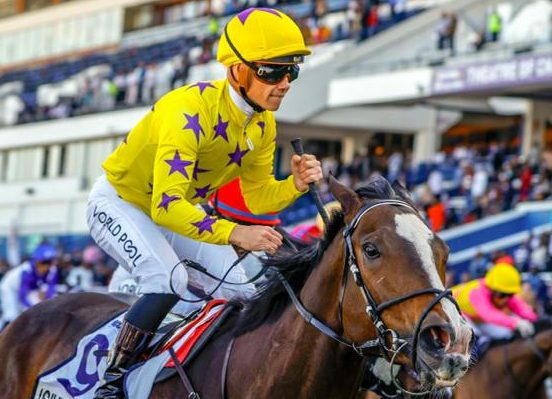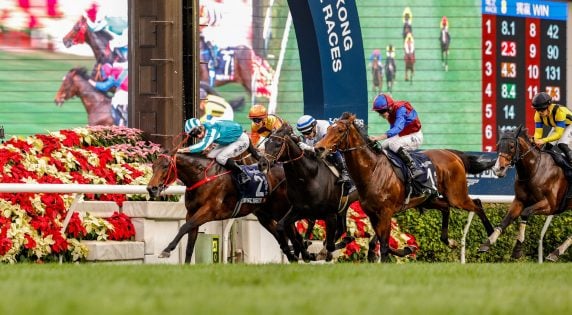Five Graded Stakes Victories in the 7 races by Japanese horses at Meydan’s stellar Dubai World Cup meeting last week, including the Gr1 Sheema Classic and Gr1 Dubai Turf, confirmed something we already know: the land of the Rising Sun is becoming a dominant force in world racing and breeding.
Robin Bruss writes that four wins at the Saudi Cup meeting last month – turf and dirt – plus two of the four Gr1 races at Hong Kong’s biggest meeting in December and two Breeders Cup wins the previous month at America’s flagship day makes it 13 international Stakes wins in the past 3 months confirming again: Japan is a major player.

“These Japanese breed phenomenally tough horses” remarked British champion trainer John Gosden at Meydan on Dubai World Cup night.
“ We in international racing now have to respect them, because they are kicking us for a Six!” he told Andrew Bon in a 4Racing interview.
“I just wish our racing in England was part of the Department of Agriculture and Fisheries, like Japan’s”, he said, “and we had a tote monopoly and it could invest back into the sport. In Japan, the prize money they run for is just in another league – and Japan is really showing us what the sport is all about.”
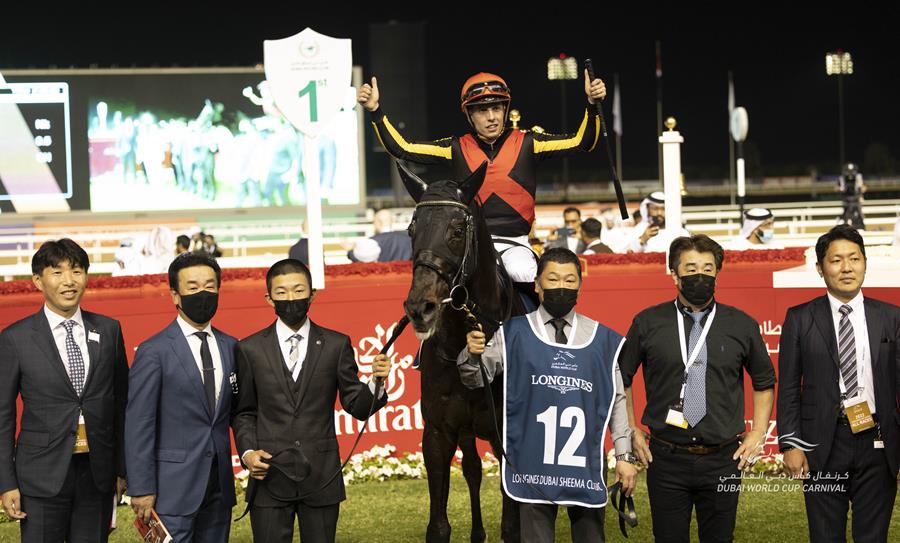
Shahryar connections after winning the $6 million Dubai Sheema Classic (Pic – ERA)
“The quality of the Japanese horses is remarkable and the trainers don’t spare them, they are not lily livered in how they train them, it’s spartan in the old fashioned way. We in England have gotten a bit soft because our breed is not as tough as it used to be” he continues.
“Perhaps horses might be as tough in South Africa” he said “but what happened in Europe and North America is that we started breeding horses for the sale ring, and not for the racecourse. Now our horses can’t take the hard work that we used to give them, and it’s a problem for us.
“The Japanese are showing us how it should be done”.
Sky Sports pointed out by way of explanation that the 7 biggest Gr1 races in Japan are all run between 2000m and 3200m. The two richest are run for Y400m (R47 million) each over 2400m. The other five (2000m., 2000m, 2200m, 2400m and 3200m) are worth Y200m (R23,5m) each.
There are 23 Gr1 races and only two of them are for two year olds and both over 1600m.
The breed is therefore built on the back of later maturing stamina. And why is that?
Because of the admirable traits that a horse must have to be able to run long distances: Toughness, soundness, durability, grand cardiovascular system. A horse can’t run long without being super fit. And super fit requires a lot of mileage, a good breathing system and a big engine inside the chest.
Breeding for yearling sales rewards commercial breeders with more forward muscular sprinter types that will run early and reduce costs in waiting to get to the races. The yearling market doesn’t generally reward staying types.
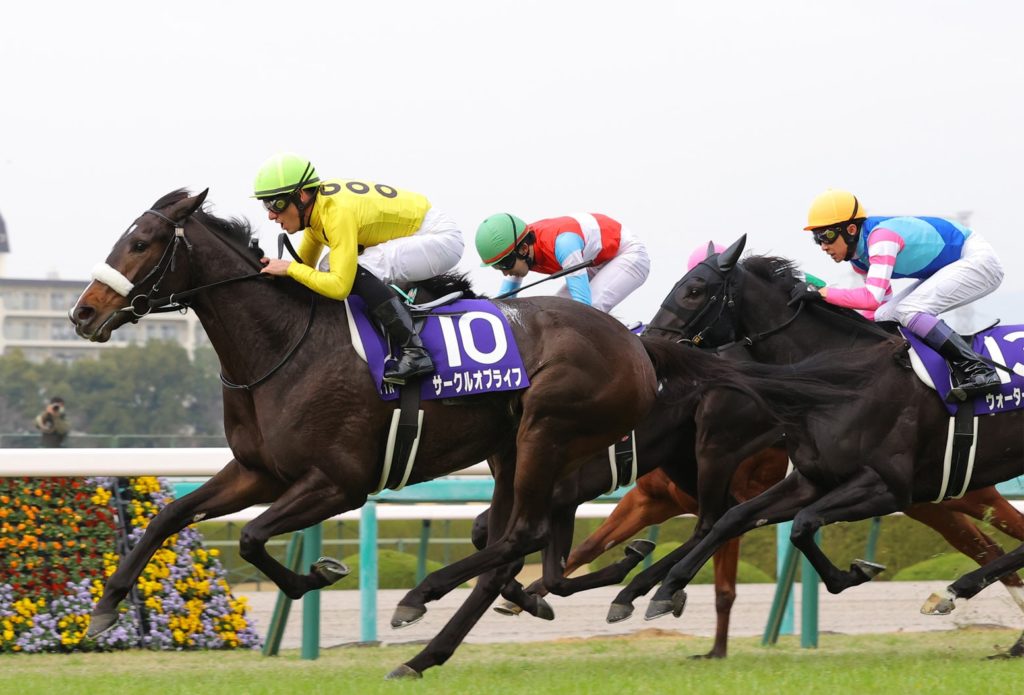
This doesn’t mean that Japan doesn’t also breed Gr1 class sprinters – they do, because of the quality and class of the mares they use which, infused with stamina stallions, prove that speed can come from stamina individuals, something not generally recognised by breeders or owners.
Take the 2021 champion filly Gran Alegria who was by Champion Triple Crown winner and 10 times Champion Sire Deep Impact -who won 7 Gr1’s from 2000m to 3000m – and out of the mare Tapitfly (USA), winner of the Gr1 Breeder’s Cup Juvenile S. and Gr1 Just a Game S , both at 1600m and by the stamina influence Tapit.
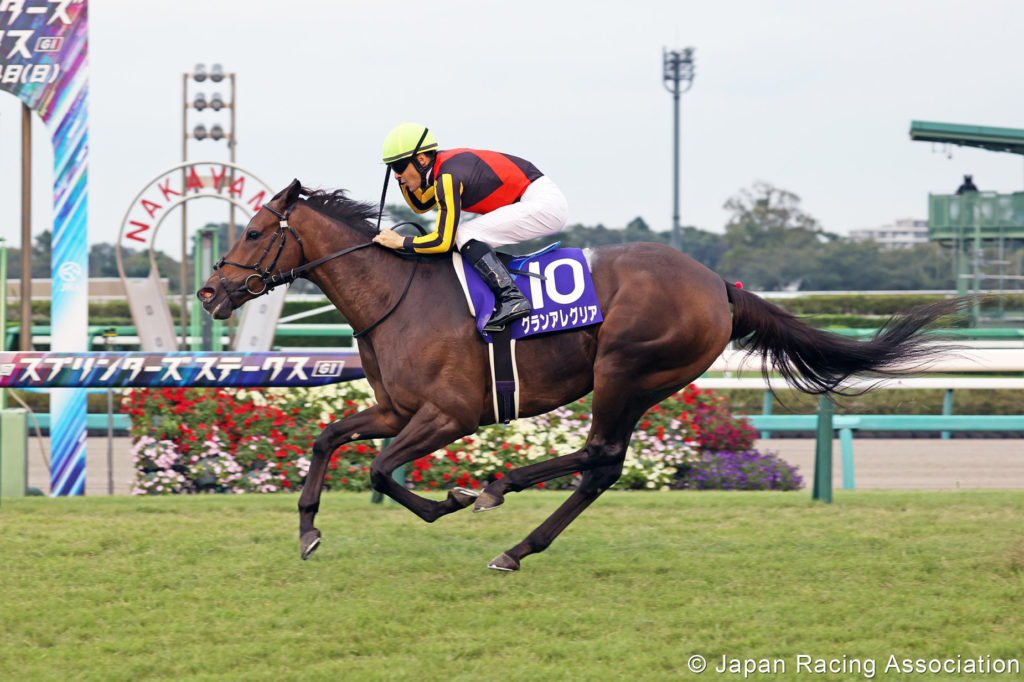
Gran Alegria
Gran Alegria won the Gr1 Nakayama Sprinter S. over 1200m against the best sprinting colts. But she also won another 6 other Gr1 races up to 1600m, and earned over one billion yen (R147 million) in stakes.
Japan has had a 50 year deliberate policy of breeding and racing for the qualities needed to preserve stamina and soundness.
Apart from the distance of their major races, they also pay appearance money to every runner and therefore the more often a horse can race, the more a horse can earn, even if it’s running unplaced. The tracks have firm ground and medication rules are very strict.
Horses can only be trained at official training centres and every horse wears a number so that every workout is religiously recorded and timed. This information is published so that every member of the public wishing to take a bet has as much information at his fingertips as the trainer and the owner. It’s a case of radical transparency.
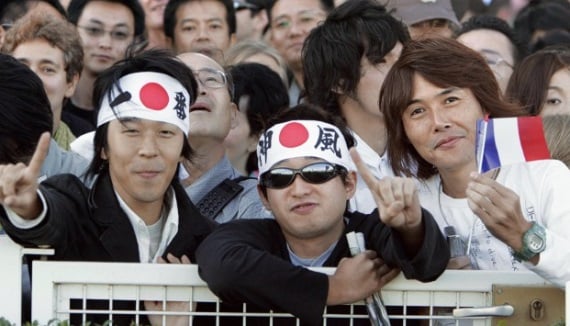
It follows a second deliberate policy: to put the punter first.
Charles Faull, who has campaigned for Punter sovereignty in South Africa for decades, points to the speech at the 1995 Asian Racing Conference held in South Africa which was given by the Japan Racing Association’s Masayuki Goto about Japan’s philosophy of racing.
“We look at racing as a business. That business generates revenue from the fans. They are our consumers”, said Goto.
“ Where does the prize money come from? Our consumers pay for it. Our first duty, therefore, if we are to run a successful business, is to make our fans happy so that they keep coming back”.
“It is the right of the fans to be the first to be considered. Everything else is secondary.”
“The fans are where we must look to grow our business. Not the Owners. Not the breeders. If we are not successful with our consumers, we will all go out of business”.
This sense of customer-centricity has created a level of fan devotion to Japanese racing that is similar to Hong Kong, and is the envy of every other racing jurisdiction where fandom is waning. Their 7 Grade 1 races attract crowds of between 100,000 and 150,000 fans.
This single minded devotion to a common philosophy on fans is mirrored in their singular faith on the long term development of the breed and its interplay with the racing programme. Breed to Race. Race to Breed.
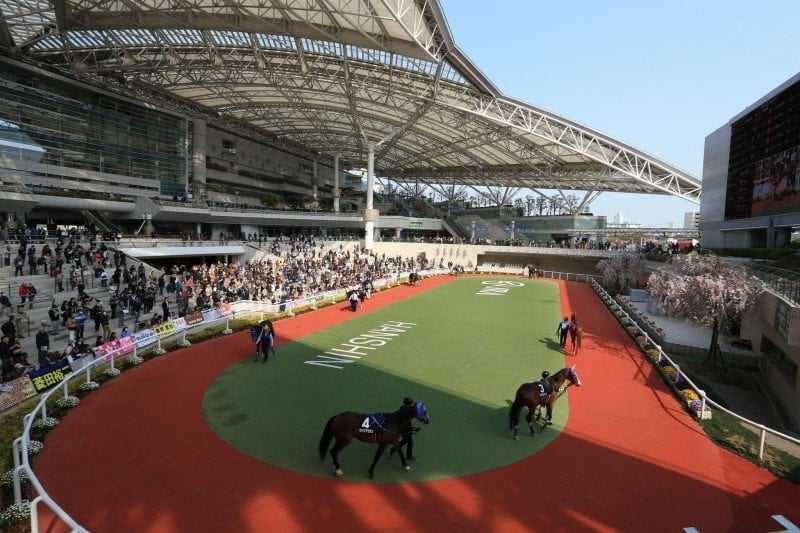
Top nothc facilities
Similarly yearling auctions have not been the prime way to sell their stock. Japan’s giant Racing Clubs generate farm sales into syndicates with fractional shares being offered to racing fans for as little as $1,000 per month over 10 months.
It works because there is a legion of happy fans wanting to extend their participation beyond punting, and own a slice of a horse as well. Their participation is enhanced. Consequenly, horses get the time on the farm that they need to develop into athletes.
Japan’s focus on happy consumers has generated long term success – for the sport – for the quality of horses – and for the soundness and toughness of the breed. Now its being demonstrated to the world in the typical Japanese mantra: perfect the product locally, unleash it to the world.
It is said that the gamechanger for Japan began with one horse: U.S. bred Sunday Silence, who was Horse of the Year 1989 after winning the Kentucky Derby, Preakness Stakes and the Breeders Cup.
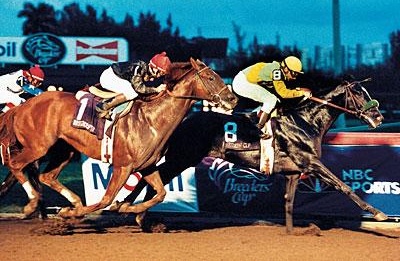
1989 Breeders Cup – Sunday Silence beats Easy Goer
A $17,000 yearling with imperfect conformation and a weak female line, Sunday Silence had two major attributes: a stellar track record with 9 wins in 14 starts and $4,9m earnings, and a pedigree packed with Bieber-Jacobs influence on both sides of his pedigree. In hindsight, this made him a perfect candidate for Japan.
His sire Halo was a Gr1 Winner who ran 31 times for 4 seasons for 9 wins. His dam Wishing Well had a plebeian pedigree, but was equally tough, running 38 times over 4 seasons, winning 12 races including the Gamely S. (that year Gr2, subsequently Gr1).
Halo’s sire was the Bieber-Jacobs bred Champion Hail to Reason (18 starts as a 2 year old for 9 wins), a son of their homebred mare Nothirdchance (93 starts, from 2 to 8 years, for 11 wins).
Wishing Well was by Bieber-Jacobs bred Understanding (87 starts for 8 wins) who was by Promised Land (77 starts, 21 wins) out of daughter of Stymie (131 starts, 28 wins).
All tough, sound, durable, hardworking horses.
American breeders shunned the syndication of Sunday Silence, fearing he would sire $17,000 yearlings like he had been himself. But Zenya Yoshida of Japan stepped in and secured the horse for his Shadai Farm in Japan, a decision that was to revolutionise Japanese breeding and turn the Yoshida family into racing royalty.
Sunday Silence became Champion Sire 13 times, sired 165 SW and 41 individual Gr1 Winners.
His best son Deep Impact succeeded him, and has been Champion Sire for the last 10 consecutive seasons.
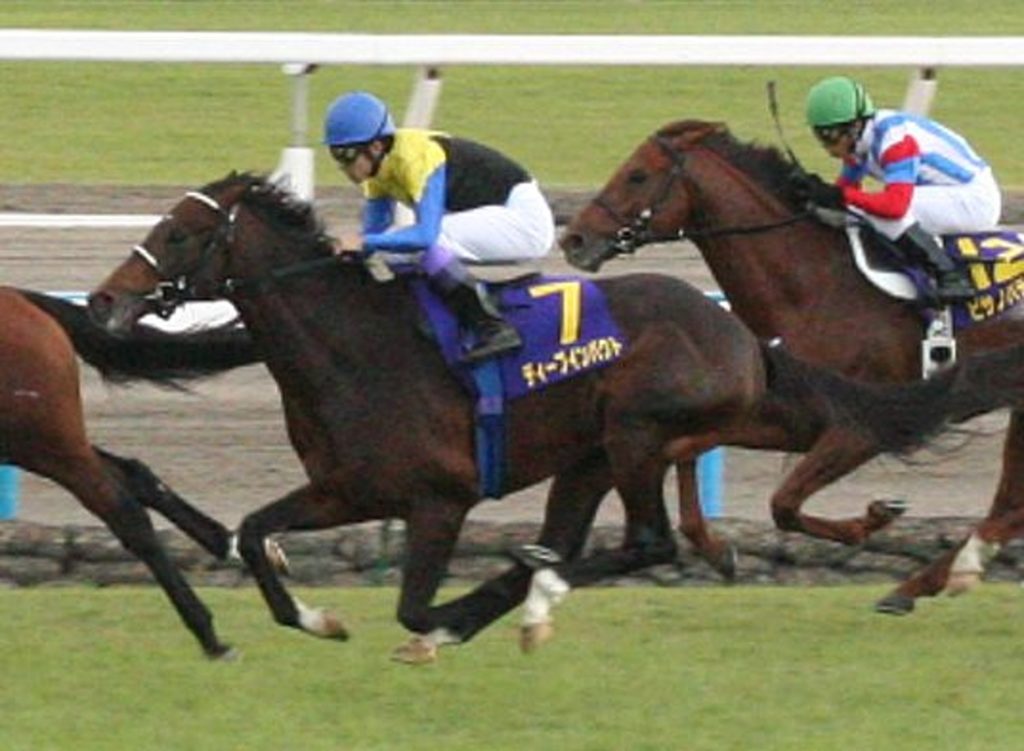
Deep Impact (Sunday Silence – Wind In Her Hair)
So far, Deep Impact has sired 184 SW and 53 individual Gr1 winners. It is estimated that more than half of every SW in Japan these days has Sunday Silence in the pedigree.
Of the 13 international Graded Stakes wins in USA, HK, Saudi and Dubai in the past 3 months, no less than 12 of the winners trace to Sunday Silence. His influence is now legendary the world over.
In closing, I’m reminded of the take home messages from Japan’s successes:
- The business that underpins the Sport depends on the happiness of the consumer.
- Everything else is secondary.
- Soundness, toughness and stamina are very important to the breed.
- The racing programme must reflect the breed that we yearn to develop.
- In the long run, breeding for the winning post is more important breeding for auction.
- A long term unified philosophy is what makes a winning nation.







